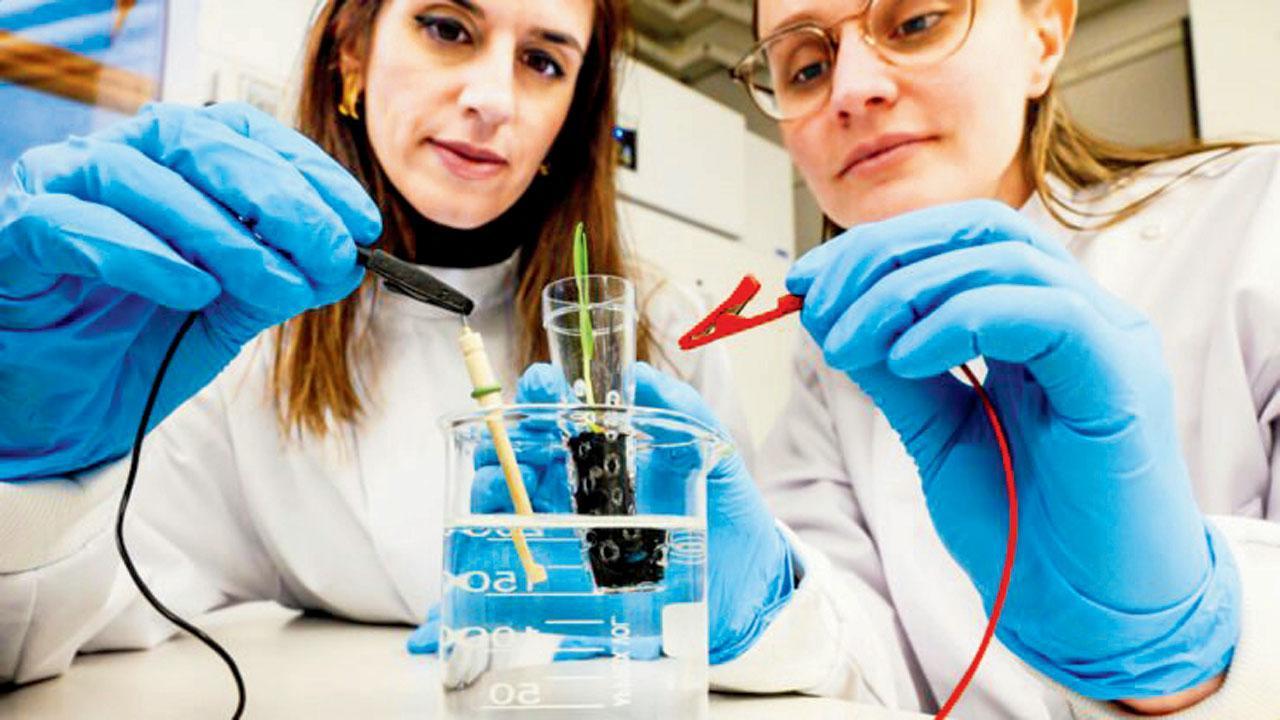The team’s eSoil, a blend of cellulose and the conductive polymer PEDOT, marks a shift from traditional mineral wool substrates.

Pic/Linkoping University
Researchers at Linkoping University have made a significant advancement in hydroponic cultivation, developing an electrically conductive substrate that enhances plant growth. This innovation, published in the journal PNAS, showcases barley seedlings growing 50 per cent larger in just 15 days when their roots receive electrical stimulation through this new medium, dubbed eSoil. Hydroponics, traditionally used for vegetables and herbs, now shows promise for grains like barley. The team’s eSoil, a blend of cellulose and the conductive polymer PEDOT, marks a shift from traditional mineral wool substrates.
ADVERTISEMENT
AI discovers unknown truth in raphael painting
A groundbreaking study using Artificial Intelligence (AI) has revealed a surprising discovery in Raphael’s famous painting, Madonna della Rosa. Conducted by experts from the Universities of Nottingham, Bradford, and Stanford, the study found that the face of Joseph in the painting was likely not created by Raphael. The AI-based deep feature analysis was led by Professor Hassan Ugail from the University of Bradford. The algorithm, boasting a 98 per cent accuracy rate, identified discrepancies in the portrayal of Joseph’s face compared to the rest of the artwork. This supports earlier suspicions by art scholars as well.
 Subscribe today by clicking the link and stay updated with the latest news!" Click here!
Subscribe today by clicking the link and stay updated with the latest news!" Click here!







